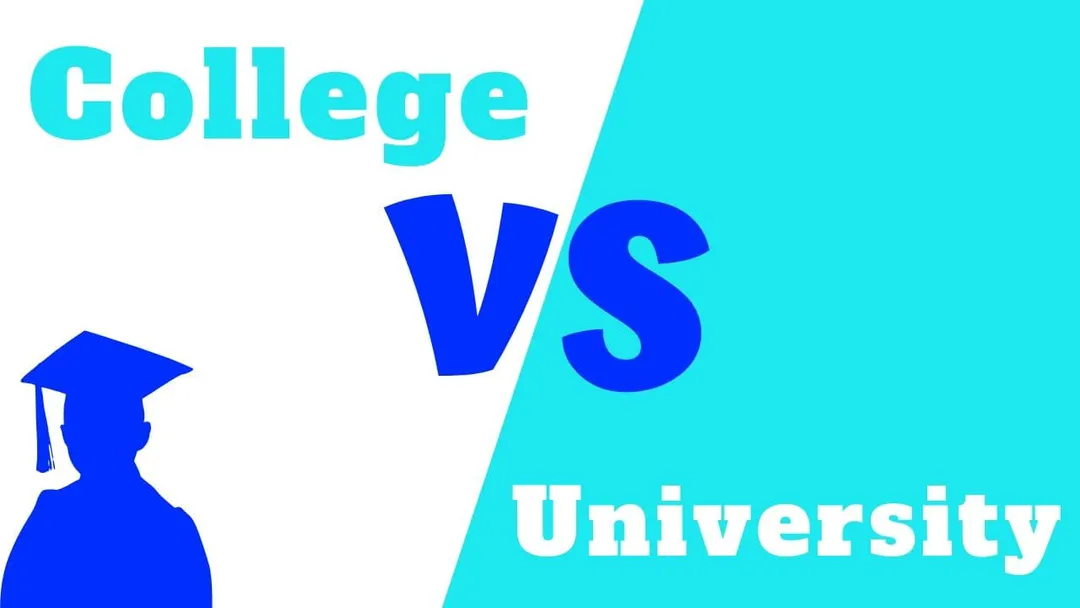Oguz Kaan Kısa · April 17, 2021

The concepts of “college” and “university”, which are used especially in America and Canada, cause complex concepts for students and their families. Usually Americans use the word “college” for higher education. “Going to college” means going to any college or university in the United States. Both colleges and universities can be private or state owned. Both colleges and universities offer the same types of undergraduate degrees in many different fields. Both have the same courses and the same basic graduation requirements. Entry requirements for colleges and universities are almost the same, and both colleges and universities can be very selective and competitive. In fact, many colleges are generally more selective in the rankings and have better reputations than many universities. The quality of both colleges and universities depends on many factors such as selectivity, faculty-student ratios, professors, facilities and career services. A college or university may have an excellent engineering program but a lower grade journalism program or vice versa. So, are there any differences between colleges and universities?
Colleges offer undergraduate degrees (4-year degrees) and sometimes Masters degrees (1 to 2 years after a bachelor's degree), but they do not offer a doctorate. Many colleges also have specialized programs where students can earn a Bachelor's degree (4-year degree) and a master's degree within 5 years instead of the regular Bachelor's degree.
Universities offer bachelor's, master's and doctoral degrees. Universities also have more departments than colleges. However, there are exceptions. Some major universities have departments for different programs called "Faculty of Humanities", "Faculty of Engineering" or "School of Design".
Colleges are institutions with smaller class sizes and fewer students with a stronger sense of community and individual student support. Students therefore choose colleges; They choose to study in colleges to get to know most of their classmates and professors and interact with people they know on campus every day. They don't want to feel lost in a crowd that might happen at a larger university.
Entry-level classes for freshmen and sophomores at universities can be overcrowded, and students may have little or no personal interaction with instructors. Universities have much more students than colleges. In this way, students can interact with more students and meet people with similar interests on campus. Especially foreign students prefer universities to meet and mingle with more local students.
Small colleges often have specialized programs in their field, and often the highest ranked programs in a particular field are found in such colleges. Many students choose smaller colleges because of a specific study program and opportunities to work closely with professors on research and special projects when they are still undergraduate students. Many view small colleges as the most ideal educational institution to build a strong foundation. Universities generally offer more variety. This can also mean a wider variety of elective courses you can choose to explore your interests. Universities can also offer compulsory courses more often and more courses during the summer semester, which can help students graduate on time within four years.
In colleges, professors teach all the courses themselves, and students often receive more personal attention because there are fewer students in their classes. A detail that many international students do not realize is that in universities, most lower-level classes are taught by graduate students, not professors. This is because at universities, the time and attention of professors is divided between research and teaching. Professors usually devote most of their time to their research, publications and teaching postgraduate courses and training their assistants.
Many colleges; It has excellent physical facilities in terms of classrooms, dormitories, meals, theaters, art studios and gyms. Universities often offer more and significantly larger, more up-to-date, and better stocked libraries and research opportunities than all of them.
Neither colleges or universities are better than each other, but they are different and one or the other might be better for you. When choosing a school for your undergraduate studies, you can decide which factors are most important to you with the help of our experts. It is a good idea to research and visit various schools before making your decision.

 Back
BackLet us find your dream university.
